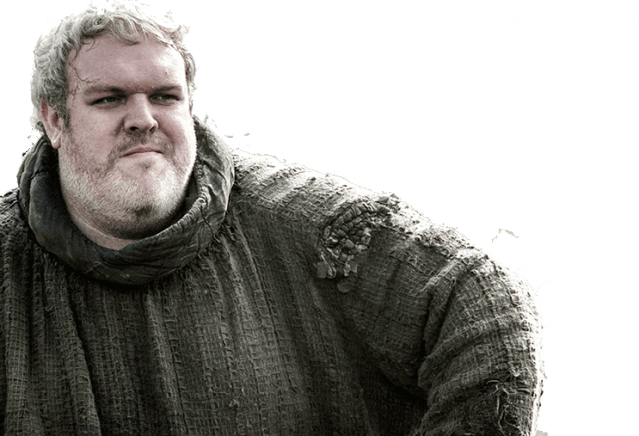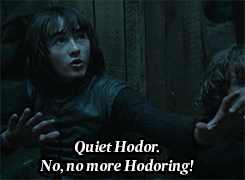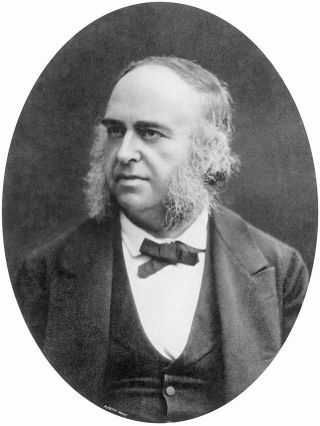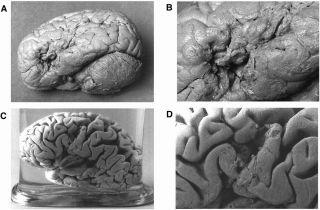Trauma
Why Does Game of Thrones' Hodor Only Say "Hodor"?
There's a neurological explanation behind why Hodor only says one word.
Posted April 10, 2015

Hodor hodor hodor. Hodor hodor? Hodor. Hodor-hodor. Hodor!
Oh, um, excuse me. Did you catch what I said?
Fans of Game of Thrones, the fifth season of which premieres this Sunday, know what I’m referencing, anyway. Hodor is the brawny, simple-minded stableboy of the Stark family in Winterfell. His defining characteristic, of course, is that he only speaks a single word: Hodor.
But close readers of the Song of Ice and Fire books from which the TV show sprung may know something that fans of the show don’t: his name isn’t actually Hodor. According to his great-grandmother Old Nan, his real name is Walder. “No one knew where ‘Hodor’ had come from,” she says, “but when he started saying it, they started calling him by it. It was the only word he had.”

So what can account for Hodor’s incessant Hodor-ing? Whether he intended it or not, George R. R. Martin created a character with a textbook example of a neurological condition called expressive aphasia.
The condition dates back to the French physician Paul Broca. In 1861, Broca was introduced to a man named Louis-Victor Leborgne. While his comprehension and mental functioning remained relatively normal, Leborgne had progressively lost the ability to produce meaningful speech over a period of 20 years. Like Hodor, the man was nicknamed Tan because he only spoke a single word: Tan.
Just a few days after meeting Broca, Leborgne passed away. Broca’s autopsy found a lesion in the frontal lobe of Leborgne’s left brain hemisphere, just next to a brain fold called the lateral sulcus. Over the next two years, Broca acquired brains from 12 more patients with Leborgne’s symptoms, and found strikingly consistent damage in that area.

Neuroscientists are still examining this small region of the brain, now often referred to as “Broca’s area,” in an attempt to work out its many functions. While most research has focused on a patient’s inability to form syntactically complex sentences when this area is damaged, more recent work using functional magnetic resonance imaging (fMRI) has also reported that Broca’s area is active during language comprehension tasks, interpretation of movement, and comprehending various gestures also associated with speech, such as waving good-bye.
In collaboration with French scientists in 2007, a group at the University of California used magnetic resonance imaging to revisit the brains of Leborgne and Lelong (another of Broca’s patients who could only speak five words). One of their most interesting findings was that their lesions extended much deeper than Broca had reported, suggesting that multiple brain regions were probably contributing to their profound speech deficits.
This evidence of widespread damage is unsurprising. Leborgne, Lelong—and even Hodor—are actually more extreme examples of individuals with expressive aphasia. More commonly, a person with the disorder will express themselves in “telegraphic speech,” which usually comprises three or so words, including a noun and a verb. For example, someone may say, “Anne, dog, walk” to mean “I walked the dog with Anne today.”

The most common cause of expressive aphasia is stroke, which occurs when a blood clot blocks a vessel in the brain, resulting in tissue damage due to a lack of oxygen. It’s estimated that expressive aphasia occurs in 12 percent of stroke patients, while roughly 35 percent of stroke patients suffer from a language aphasia of some form.
Expressive aphasia can also be caused by a tumor, a hemorrhage, a hematoma in the membrane covering of the brain, or trauma to the head. It has been reported that Leborgne suffered from epileptic seizures as a child — some have speculated that he may have experienced head trauma during one such episode.
So what’s Hodor’s story? Did he sustain a blow to the head, suffer a stroke, or was he simply a giant baby dropped by his mother? Martin hasn’t offered any hints to readers or viewers.
So while Hodor may only speak one word, he may have just as interesting a backstory as the other characters in Martin’s epic.




